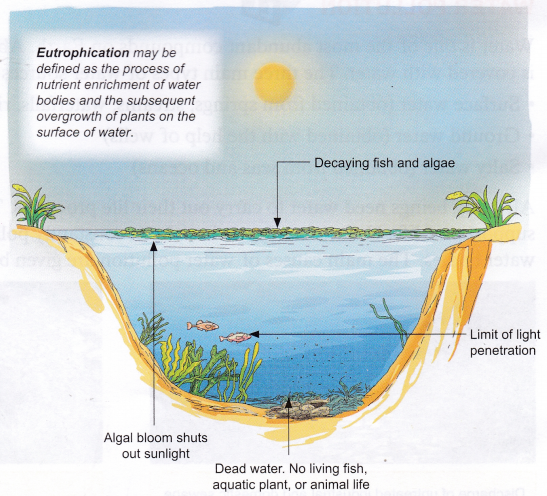Effects Of Water Pollution
Harmful effects of water pollution on living beings are as follows:
- Industrial wastes discharged into the waters contain a lot of toxic substances that make water unfit for drinking and bathing.
- Untreated domestic sewage, when released into water bodies, becomes a breeding ground for a number of organisms that cause water-borne diseases.
- Oil spills are very harmful to aquatic animals and lead to the destruction of marine life. Moreover, the cleaning up process also causes a lot of damage to marine habitats.
- Pollution of water also leads to a reduction in the number of aquatic plants and animals due to the destruction of habitat and nesting places.
- The wastewater released by factories and industries and the fertilizer-rich runoffs from agricultural fields are rich in organic matter. The process of washing away of fertilizers into water bodies is called leaching. The entry of nutrient-rich water results in a thick growth of algae, called algal bloom, and many other weeds. Soon these plants cover the entire surface of the water. This is called eutrophication. The algae use up so much oxygen that the aquatic animals and other plants die due to lack of it.
- Ignition of arms and weapons releases large amounts of mercury. When water contaminated with mercury is used for drinking by animals and human beings, it causes numbness of limbs, lips, and tongue. It can also lead to blurred vision and mental disorders.

Diagrammatic representation of eutrophication
Prevention of Water Pollution
The following are some of the steps that could be taken to prevent water pollution.
- Bathing and washing clothes near water bodies like lakes, ponds, and rivers should be avoided.
- Domestic and industrial sewage wastes should be treated to remove toxic substances before being released into water bodies.
- Pollution-control rules enforced by the government should be followed strictly.
- The use of eco-friendly fertilizers and herbicides should be encouraged.
